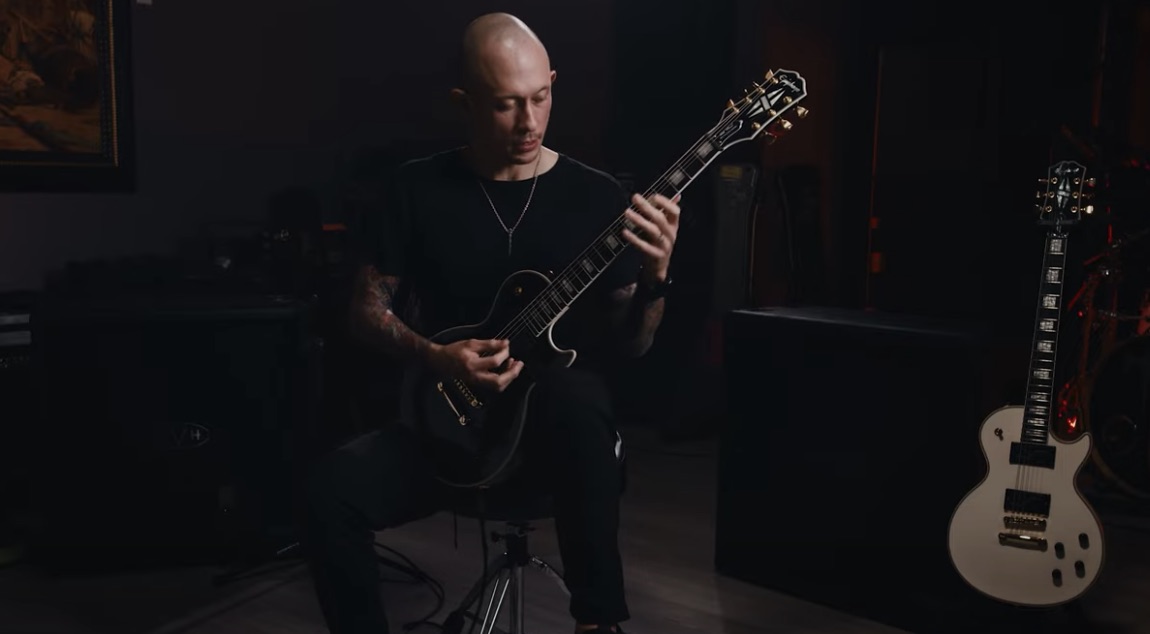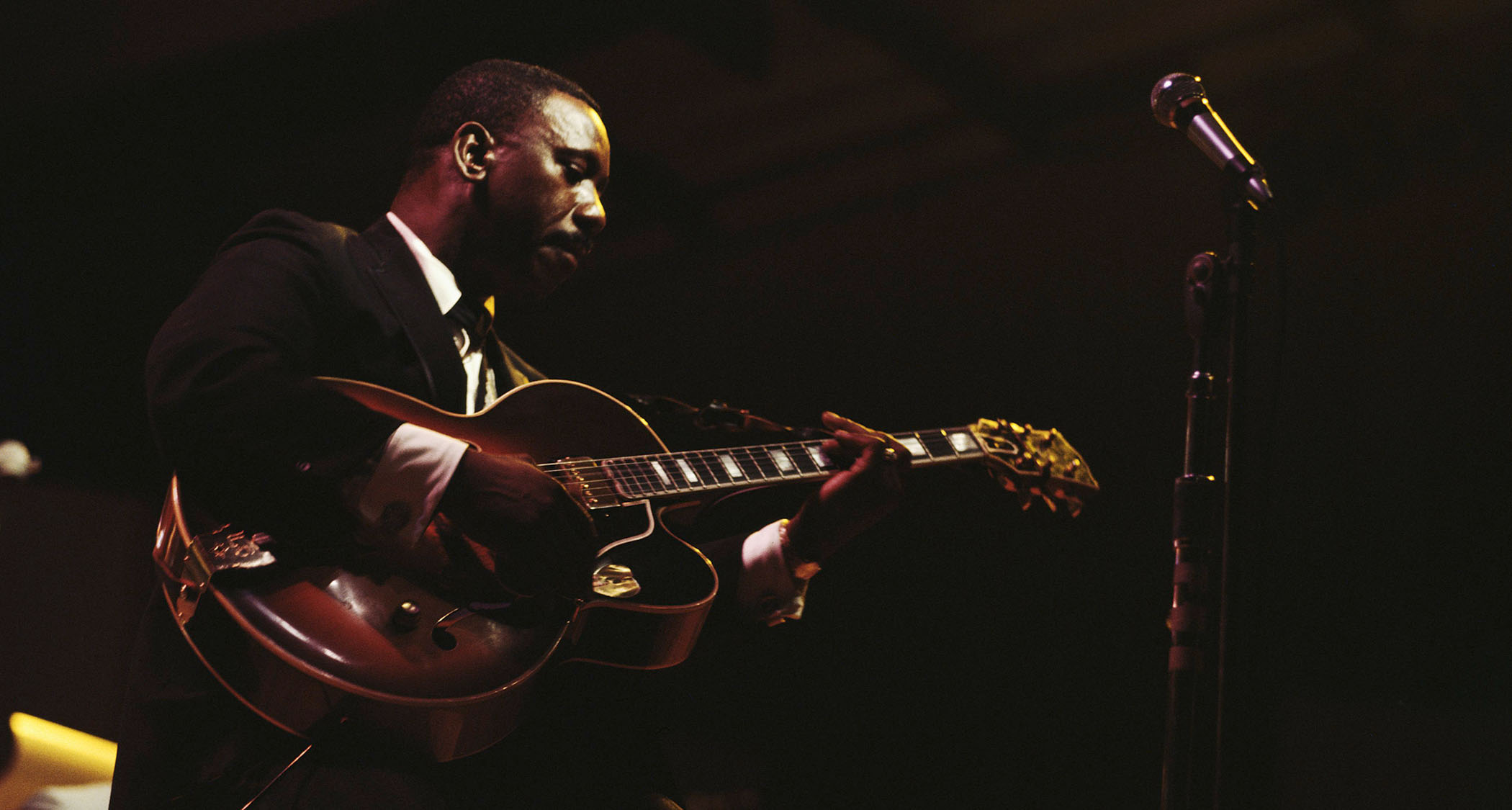Matt Heafy teaches the ins and outs of Trivium's most ferocious riffs in latest episode of Gibson's Riff Lords
Signature Epiphone Les Paul in hand, Heafy offers up some useful technical tips, and reveals how the unusual healing of a broken pinky on his fretting hand helps him with some particularly gnarly stretches

Today (May 6), Trivium’s Matt Heafy released Rashomon, the highly-anticipated debut album from his black-metal side project, Ibaraki.
Though Ibaraki has likely taken up a lot of Heafy’s focus lately, the electric guitar great still found some time recently to sit down with Gibson for an episode of the company’s Riff Lords YouTube series.
The new episode – which you can see below – features Heafy teaching viewers the ins and outs of Trivium's most diabolical riffs, and offering some helpful general tips along the way.
Wielding the six-string version of his signature Epiphone Les Paul Custom, Heafy first dives into the title track of the band’s first album, 2003's Ember to Inferno. At that time, Heafy notes, Trivium was a three-piece, so he was looking to marry rhythm and melody within his guitar parts.
With that blending of lead and rhythm guitar styles in mind, Heafy also highlights his use of vibrato in the riff. “Vibrato’s an incredibly useful thing to have, especially in leads,” Heafy says, “but to have it in rhythm as well is important.”
Next, Heafy tackles the complex inner rhythmic workings of the machine-gun like Suffocating Sight – from 2005’s Ascendancy – before moving on to Incineration: The Broken World, off of 2013's Vengeance Falls.
Incineration's fierce riff contains more vibrato wiggles, plus a bevy of high-speed hammer-ons and pull-offs. Those accentuations, Heafy explains, are crucial to its power, a point he makes quite effectively by killing his guitar's volume entirely and playing it without amplification.
Get The Pick Newsletter
All the latest guitar news, interviews, lessons, reviews, deals and more, direct to your inbox!
Heafy then swaps out his six-string signature Epiphone for his seven-string signature Epi, and teaches Into the Mouth of Hell We March, from 2008’s Shogun. During the tutorial, Heafy reveals that after he broke his pinky in high school, it healed in a way that helps him with some of that riff’s (and those of other riffs of course) gnarlier stretches.
Elsewhere in the video, the Trivium guitarist offers viewers an up-close look at intense passages from Betrayer (2017’s The Sin and the Sentence), the title track of 2020’s What the Dead Men Say and, finally, the title track from the band’s most recent effort, 2021’s In the Court of the Dragon.
Heafy says that guitarists can “flourish” after learning these riffs, and incorporating some of their many technical elements into their own playing. We’re certainly inclined to agree.
To pick up a copy of Ibaraki’s Rashomon, visit the project’s website.
Jackson is an Associate Editor at GuitarWorld.com. He’s been writing and editing stories about new gear, technique and guitar-driven music both old and new since 2014, and has also written extensively on the same topics for Guitar Player. Elsewhere, his album reviews and essays have appeared in Louder and Unrecorded. Though open to music of all kinds, his greatest love has always been indie, and everything that falls under its massive umbrella. To that end, you can find him on Twitter crowing about whatever great new guitar band you need to drop everything to hear right now.











